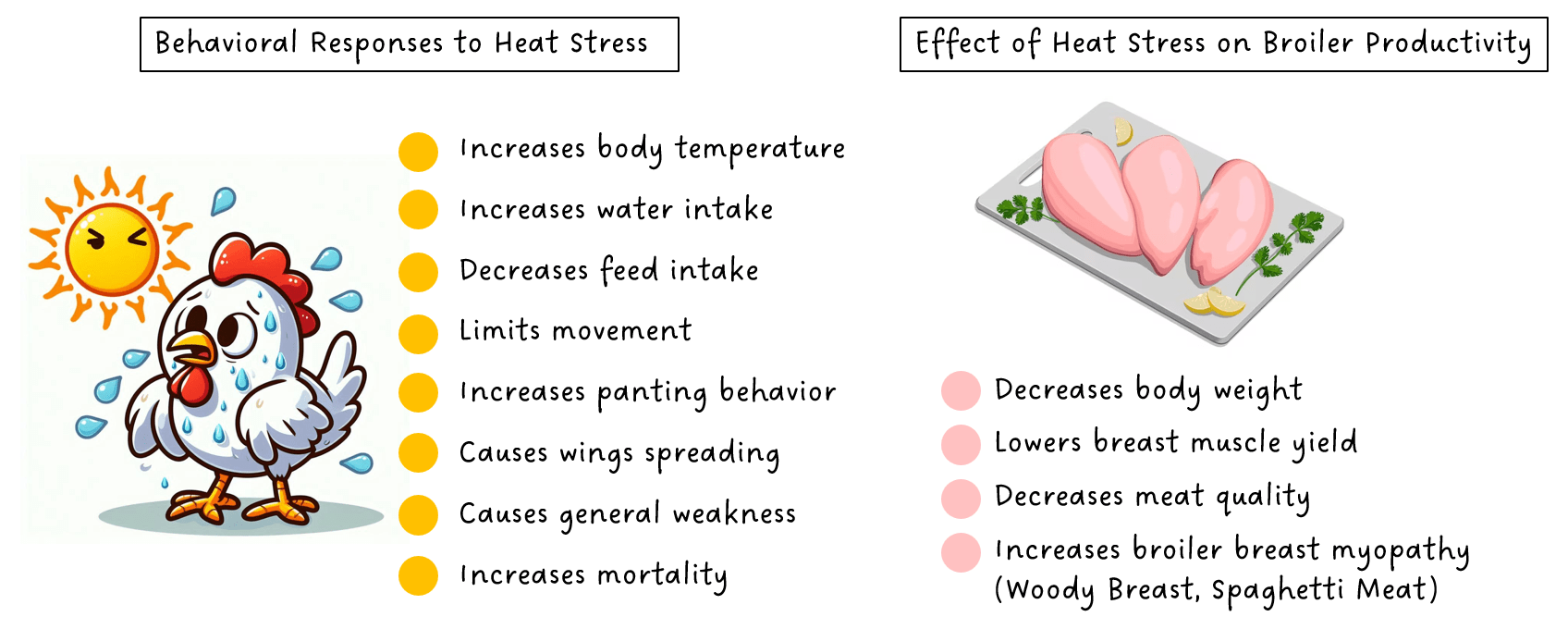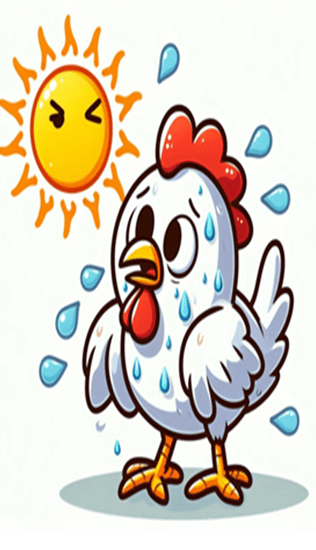Summer Heat Stress Management for Delmarva Broiler Chicken Growers
Dr. Sunoh Che, DVM, Msc., Ph.D., Diplomate ACVPM, University of Maryland Extension Poultry Specialist

Get ready for a sizzling summer! The Delmarva Peninsula is expected to experience higher than usual temperatures and rainfall this summer (https://www.cpc.ncep.noaa.gov/products/predictions/long_range/seasonal.php?lead=2).
If you're a broiler chicken farmer in the area, it's time to gear up and protect your flocks from the scorching heat. When chickens experience heat stress, they tend to eat less, resulting in slower growth rates. Moreover, the extreme heat can worsen certain breast muscle disorders in broilers, such as Woody Breast and Spaghetti Meat, leading to a lower quality product. In severe cases, heat stress can even cause increased mortality. All of these factors combined can significantly impact your profit in the end. In this column, we will discuss key management strategies to help you navigate the challenges of the upcoming summer season. By being proactive and implementing effective heat stress management strategies, you can help your broiler flocks thrive, even in the face of the upcoming hot summer weather.
1. Ventilation and Cooling Systems
Ensure that your ventilation and cooling systems are in optimal working condition before the hot weather arrives. Regular maintenance and cleaning of fans, foggers, and evaporative cooling pads are essential. Consider installing additional fans or upgrading to high-velocity fans to improve air circulation. Proper ventilation helps remove excess heat and moisture from the poultry house, creating a more comfortable environment for your birds.
2. Water Management
Provide your birds with an ample supply of clean, cool water. Regularly check and adjust the water pressure to ensure adequate flow rates, especially during peak heat hours. Keep water lines clean and free from biofilm buildup to prevent bacterial growth and maintain optimal water quality.
3. Feed Management
Adjust your feeding program to accommodate the reduced feed intake during hot weather. Consider using a more nutrient-dense diet to compensate for the decreased feed consumption.
4. Litter Management
Maintain proper litter depth and quality to prevent ammonia buildup and reduce heat retention. Consider using litter amendments or probiotics to control ammonia levels and promote a healthier litter environment.
5. Stocking Density
Reduce stocking density during the summer months to allow for better air circulation and heat dissipation. Overcrowding can exacerbate heat stress and lead to increased mortality. Follow recommended stocking density guidelines based on your housing system and bird age to ensure optimal bird comfort and performance.
6. Monitoring and Early Intervention
Closely monitor your birds for signs of heat stress, such as panting, wing spreading, and lethargy. Use temperature and humidity sensors to track environmental conditions in real-time. Implement an early warning system to alert you when conditions approach critical levels. Have a contingency plan in place for extreme heat events, such as providing additional cooling measures or temporarily reducing feed intake.
For more information, please visit our website: https://extension.umd.edu/resource/poultry-production-management/. By implementing these management strategies, you can significantly reduce the impact of heat stress on your broiler flocks. Stay vigilant, monitor your birds closely, and be prepared to adapt your management practices as weather conditions change. Wishing you a successful and productive summer season!
_________________________________________________________________________________________________________________________
Back to Commercial Poultry News - July 2024
